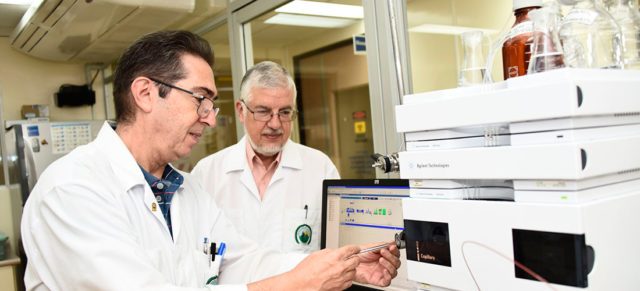A trio of scientists from the Clodomiro Picado Institute of the University of Costa Rica (ICP-UCR) collaborated in the creation of the first antidote capable of neutralizing the venom of the Black Mamba serpent made with human antibodies.
The antivenom is in the experimental stage and was developed by the Tico researchers José María Gutiérrez, Bruno Lomonte and Ana Silvia Arias, together with the English company Iontas -designed to discover and optimize human antibodies for the development of medicines- and the Technical University of Denmark.
This antidote consists of a panel of specific human antibodies against the dendrotoxins of the black mamba, the largest poisonous snake in Africa. “This is only a preliminary step, it is still far from being able to have a ‘human’ antivenom that completely neutralizes this Mamba poison, what is important here is that, for the first time, a 100% human antivenom is produced at experimental level the technology of recombinant DNA”, said researcher Dr. Gutierrez, in a statement sent by the UCR.

The existing antivenoms differ from this because they come from the plasma of hyperimmunized animals -higher than normal immunity- and its formulation. With this, although it manages to annul the poisoning in an effective way, being of animal origin can cause some allergic reactions in people.
So this antidote, carried out in collaboration with Costa Rican scientists, promises to be more compatible with the organism and, therefore, less likely to cause harmful reactions. “When antivenoms are produced from equine plasma, by following good manufacturing practices, they are very effective and safe, in a few cases they induce adverse reactions, but these reactions can occur and, therefore, work on even more compatible therapies”, assured Dr. Gutiérrez.
This antidote has already been tested in mice with positive results. The rodents with the antibody managed to be protected from the harmful effects caused by the venom of the black mamba. However, more research is still needed to ensure its efficacy and quality before being used directly on people. That will be the next step for scientists, generate new defenses against these poisons.
Currently, the people most affected by snake bites are those who live in tropical areas of high social and economic vulnerability. It is estimated that each year, about 2 million people are victims of a snake bite. Of that number, more than 100 thousand deaths occur and almost 400 thousand victims are left with permanent sequelae such as amputations.

